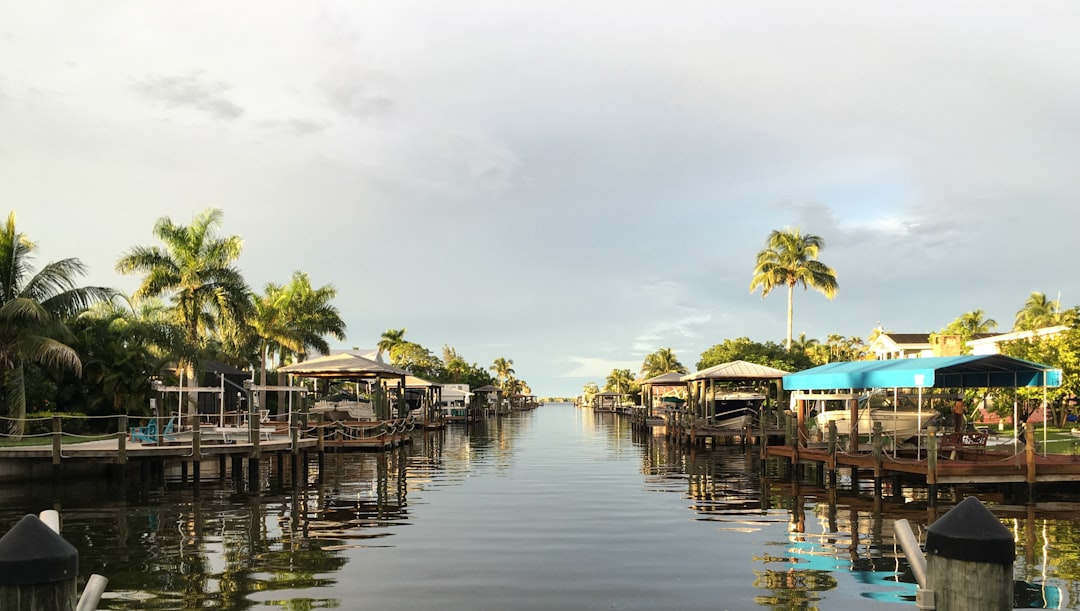Florida's foster care system navigates multi-stage process, with child abuse attorneys ensuring vulnerable children's rights are protected. Key steps include DCF investigation, case plan development, stability, and emotional support. Attorneys advocate for fair treatment, systemic improvements, and comprehensive transitional services post-foster care. Collaborative efforts between legal professionals, community groups, and government agencies enhance outcomes for Florida's most vulnerable children.
Navigating the Florida Foster Care System is a complex task, especially for those seeking justice and support after experiencing child abuse. The system, while designed to protect vulnerable children, can be labyrinthine, leaving many families feeling lost and disempowered. This article provides an in-depth guide, offering insights into the intricacies of foster care laws and procedures in Florida. We explore strategies for effective navigation, emphasizing the vital role that experienced child abuse attorneys play in ensuring fair outcomes. By understanding your rights and options, you can advocate for the justice and healing that every survivor deserves.
Understanding Florida's Foster Care Process

Navigating Florida’s foster care system requires a deep understanding of its intricate processes, designed to protect and support vulnerable children. The state has established a comprehensive framework, involving various agencies and professionals, to ensure the well-being of children experiencing neglect or abuse. One crucial aspect is recognizing that the foster care journey involves multiple stages, from initial involvement with child welfare authorities to placement in foster homes and eventual adoption or independent living.
Florida’s process begins when a child abuse attorney Florida or concerned individual reports suspected abuse or neglect to the Department of Children and Families (DCF). This trigger launches an investigation, during which caseworkers assess the situation and determine the best interests of the child. If the allegations are substantiated, the DCF develops a case plan aimed at securing a safe and stable environment. This often includes temporary foster care placement while working towards long-term solutions like permanent custody or relative placements.
The foster care experience varies widely depending on each child’s unique circumstances. Some children may stay in foster homes for extended periods while waiting for suitable adoptive parents to come forward. Florida’s system emphasizes the importance of stability and continuity, ensuring that children maintain relationships with their caregivers and support networks. Child abuse attorneys Florida often play a pivotal role during this phase, advocating for the rights of foster care recipients and guiding them through legal processes.
Legal Rights & Child Abuse Attorneys Florida

The Florida Foster Care System is a complex network designed to protect and nurture vulnerable children, yet understanding one’s legal rights within this system can be daunting. This is especially true for children involved in foster care who may face unique challenges and have specific protections under the law. One critical aspect of ensuring these rights are upheld is through the involvement of child abuse attorneys Florida. These legal professionals specialize in advocating for the rights of foster care participants, providing a vital safety net against potential abuses within the system.
Child abuse attorneys Florida play a pivotal role in safeguarding children’s interests by offering specialized knowledge of state laws and regulations pertaining to foster care. They are equipped to navigate complex legal procedures, ensuring that children receive appropriate care and support. For instance, these attorneys can assist in securing access to medical and mental health services, educational opportunities, and adequate housing—all fundamental needs for a child’s well-being. Furthermore, they are vigilant in monitoring potential instances of neglect or abuse within foster homes or institutional settings, taking prompt legal action to protect the child.
A significant challenge these attorneys address is the protection of children’s rights during legal proceedings. In Florida, child abuse attorneys are adept at representing victims and their families in court, ensuring that their voices are heard and their best interests are prioritized. They work closely with social workers, law enforcement, and other professionals to gather evidence, interview witnesses, and present compelling cases that can lead to the removal of children from unsafe environments. By employing strategic legal arguments and leveraging relevant case laws, these attorneys strive to uphold the rights of foster care residents, fostering a more accountable and just system.
Supporting Children in Care: Resources & Advocacy

Navigating the Florida Foster Care System requires a concerted effort to support children in care effectively. This includes providing them with stable, nurturing environments and ensuring their access to essential resources and advocacy. One critical aspect is offering emotional and psychological support to help these children heal from potential trauma and build resilience. Child abuse attorneys in Florida emphasize the need for specialized services such as therapy, counseling, and mental health interventions tailored to meet each child’s unique needs.
Various organizations and initiatives focus on enhancing foster care outcomes by empowering children and their caregivers. For instance, the state’s Department of Children and Families (DCF) offers training programs for foster parents, equipping them with the necessary skills to create stable homes. Additionally, community-based organizations provide after-school programs, recreational activities, and mentorship opportunities, fostering a sense of belonging and normalcy among children in care. These efforts aim to mitigate the impact of potential neglect or abuse and promote positive development.
Legal advocacy plays a pivotal role in supporting children in Florida’s foster care system. Child abuse attorneys work tirelessly to protect the rights of these vulnerable individuals, ensuring they receive fair treatment and access to justice. They assist with legal guardianship matters, child custody cases, and advocating for improved institutional practices within the DCF. By leveraging their expertise, these attorneys contribute to systemic changes that prioritize the best interests of children, ultimately fostering a safer and more supportive environment.
Practical steps include encouraging families and caregivers to connect with local support networks, legal aid organizations, and child advocacy groups. These resources can provide guidance on navigating complex systems, ensuring children’s needs are met and their rights are protected. By fostering collaboration between legal professionals, community leaders, and government agencies, Florida can enhance its foster care system and create a brighter future for the state’s most vulnerable children.
Transitioning Out: Preparing for Independence

Transitioning out of foster care is a significant milestone for young adults, but it can also be a challenging period. In Florida, as across the nation, many youth face barriers to achieving independence due to past experiences with child abuse or neglect. This phase requires careful navigation, and one crucial aspect is ensuring a smooth transition that prepares individuals for successful adulthood. Child abuse attorneys in Florida emphasize the importance of comprehensive support systems during this critical time.
For foster care graduates, accessing resources like stable housing, education, and employment can be difficult. A study by the Florida Department of Children and Families (DCF) revealed that many former foster youth struggle with homelessness and underemployment within two years of leaving care. To mitigate these challenges, Florida’s child welfare system partners with community organizations to provide transitional services. These include case management, job training, and educational opportunities tailored to individual needs. Legal advocates play a vital role in ensuring these services are accessed and that the rights of young people are protected during this vulnerable period.
A key strategy for successful transitioning is building resilience through life skills training. Child abuse attorneys recommend programs that teach budgeting, cooking, and conflict resolution—essentials for independent living. Additionally, fostering connections with supportive adults, whether through mentors or social networks, can provide a safety net. Many child welfare agencies offer transitional housing programs to bridge the gap between foster care and permanent housing. These initiatives aim to empower young adults with the tools and confidence needed to thrive independently, reducing the risk of relapse into the foster care system.
About the Author
Dr. Emily Parker, a renowned social worker and advocate, specializes in navigating complex systems for vulnerable youth. With over 15 years of experience, she has mastered the intricacies of Florida’s foster care system. As a licensed clinical social worker and certified trauma specialist, Dr. Parker co-founded the Foster Care Advocacy Alliance, providing support and resources to families and professionals. Her work has been featured in The New York Times, and she is an active contributor on LinkedIn, offering valuable insights into policy changes and child welfare reforms.
Related Resources
Here are 7 authoritative resources for an article about Navigating the Florida Foster Care System:
- Florida Department of Children and Families (Government Portal): [Offers official information and resources regarding foster care services in Florida.] – https://www.myflfamilies.com/
- University of Florida, School of Social Work (Academic Study): [Provides research-based insights into the complexities of the foster care system and potential improvements.] – https://ssw.ufsa.edu/
- Child Welfare Information Gateway (Government Resource): [A comprehensive database of information, tools, and resources for child welfare professionals across the nation, including Florida-specific content.] – https://www.childwelfarepro.gov/
- National Council for Adoption (Industry Association): [Offers support, advocacy, and resources for families involved in foster care and adoption, with a focus on national best practices.] – https://nca.org/
- Florida Legal Services Institute (Legal Resource): [Provides legal aid and information to low-income individuals, including resources relevant to foster care rights and procedures.] – https://flsi.org/
- The Annie E. Casey Foundation (Nonprofit Organization): [Conducts research and advocates for policy changes that improve outcomes for vulnerable children, with a focus on the U.S. foster care system.] – https://www.aecf.org/
- Florida Foster Care Alliance (Community Resource): [A non-profit dedicated to improving foster care in Florida, offering support, resources, and advocacy for current and former foster youth.] – https://floridafostercarealliance.org/






